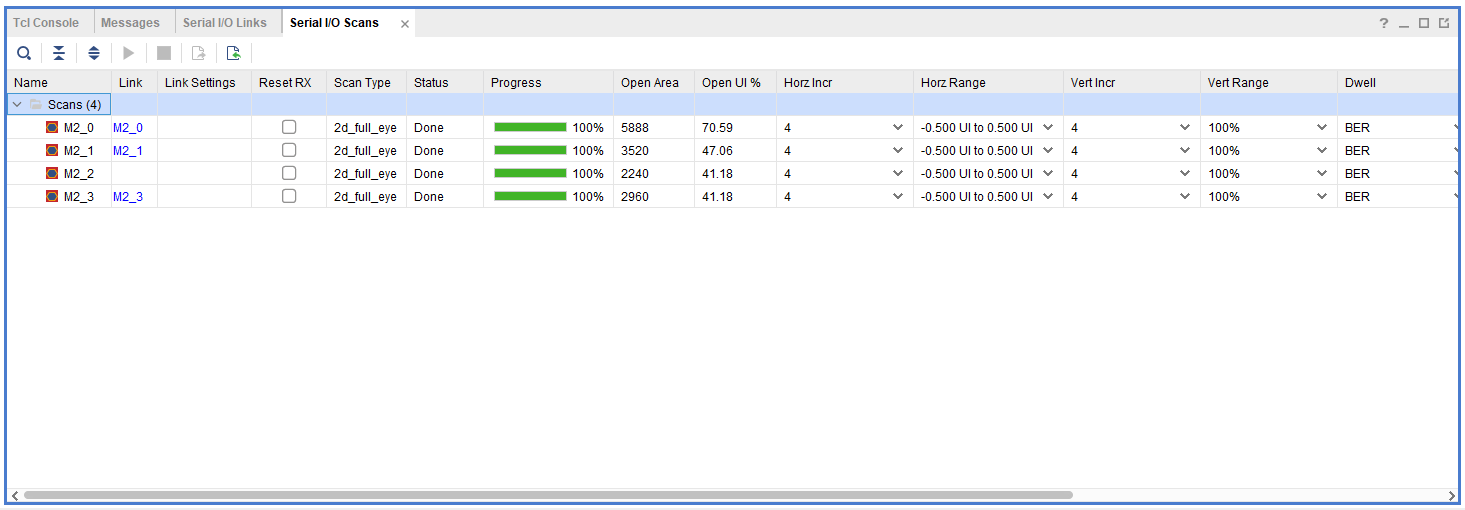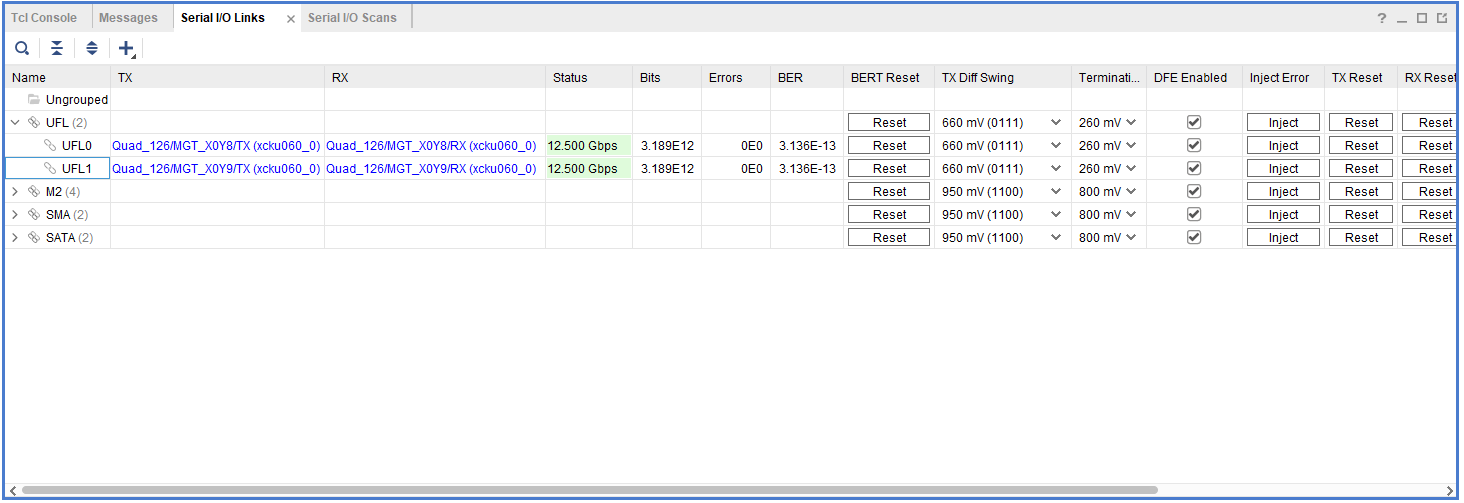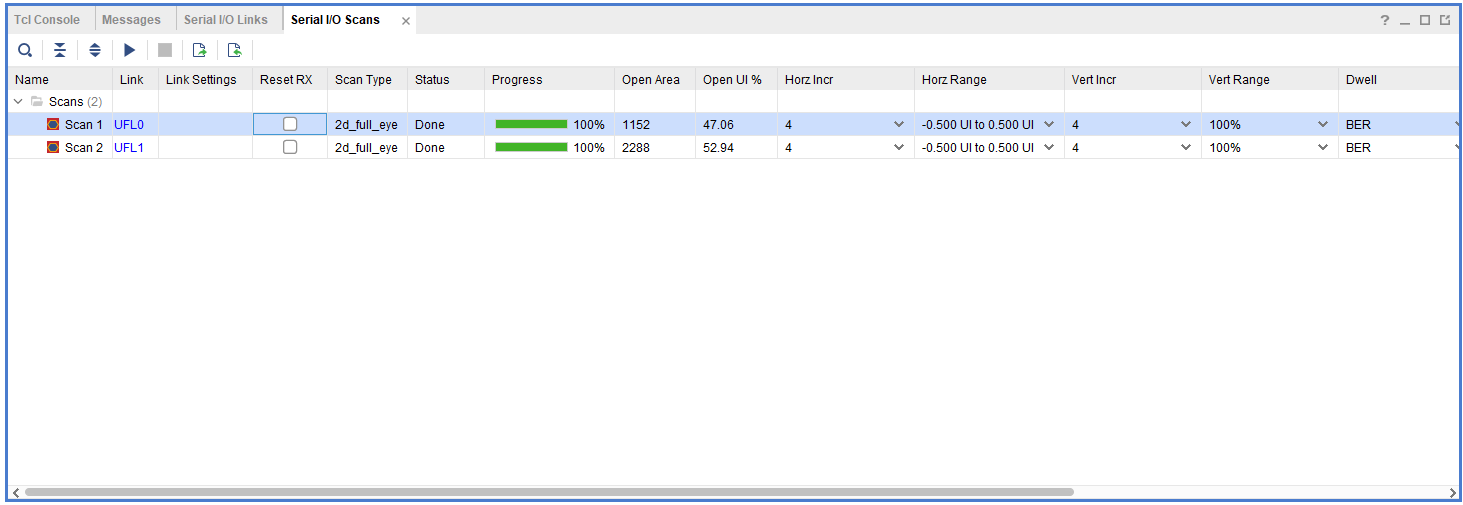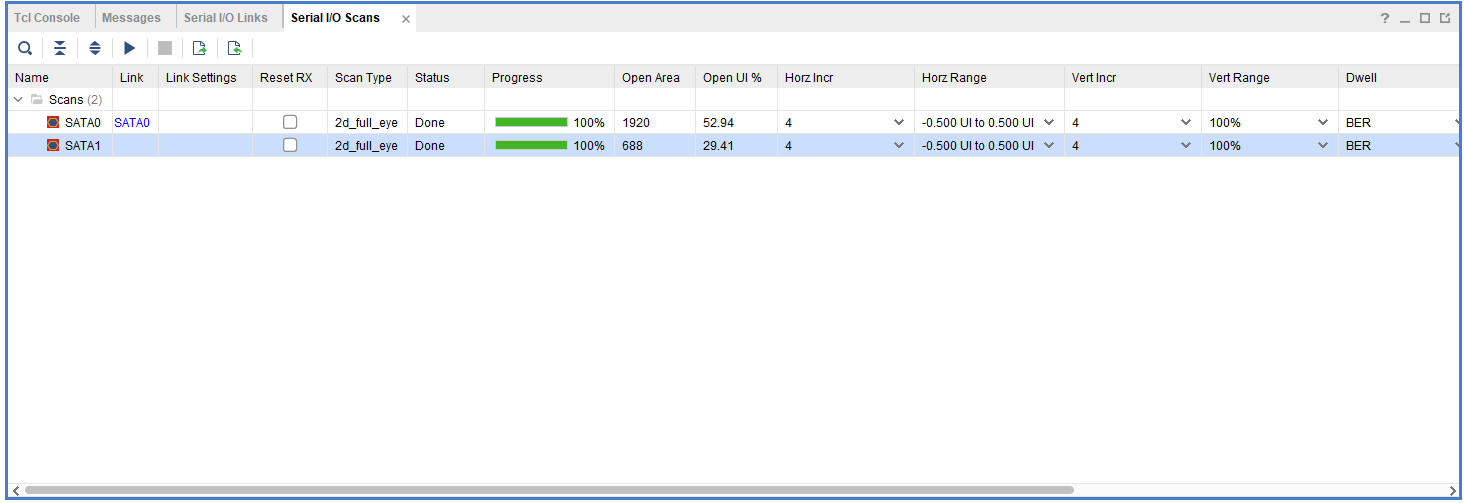BRK8350 IBERT Performance
Xilinx’s IBERT tool was used to create a measurement of each GTH channel’s eye diagram when using a loopback mode. Eye diagrams for each of the BRK8350 peripherals were captured using this tool with a simple loopback attached to each peripheral. The settings presented below are illustrative of a single configuration with minimal tuning to achieve the provided result. Any changes to the configurations described below can result in reduced performance. Decreasing the serial transfer rate can also improve the performance of each channel. The IBERT settings used for these tests are presented below.
The following parts were used as loopback cables, etc.
| COMPONENT | MANUFACTURER / PN | DIGI-KEY |
|---|---|---|
| QSFP Fiber Module | FormericaOE TQS-Q14H9-J83 | 1785-1074-ND |
| 33ft Fiber | Karono KR12MB10M | N/A |
| M.2 Loopback | FPGADrive OP057 | N/A |
| U.FL Cable (200mm) | Hirose Electric U.FL-2LP-04N1-A-(200) | Digi-Key H9162-ND |
| SATA Crossover | cpustuff.com P/N CS6467-08I | N/A |
| SMA Cable (6″) | Generic | N/A |
All measurements shown below were taken with XEM8350 PCB Revision Dxx.
QSFP – 33ft Fiber – 12.5 Gbps
A FormericaOE QSFP module was inserted into each QSFP port with a length of fiber connecting the two ports to each other.
Settings
The default IBERT settings were used for the captures below
Performance

M.2 – 12.5 Gbps
An M.2 Loopback module from FPGADrive was used to test the performance of the M.2 PCIe interface.
Settings
The default IBERT settings were used for the captures below
Performance

U.FL – 12.5Gbps
200mm U.FL to U.FL cables were used to loop each GTX TX back to their respective RX connections.
Settings

Performance

SMA – 8Gbps
6 inch SMA to SMA cables were used to connect the GTX 116 Ch 0 TXp/n and RXp/n together in a loopback configuration.
Settings

Performance

SATA – 12.5Gbps
Due to the configuration of the SATA ports on the BRK7360 a crossover SATA cable must be used to loop back the connection properly. In these tests an 8 inch crossover SATA cable was connected between the SATA ports.
Settings
The default IBERT settings were used for the captures below.
Performance
